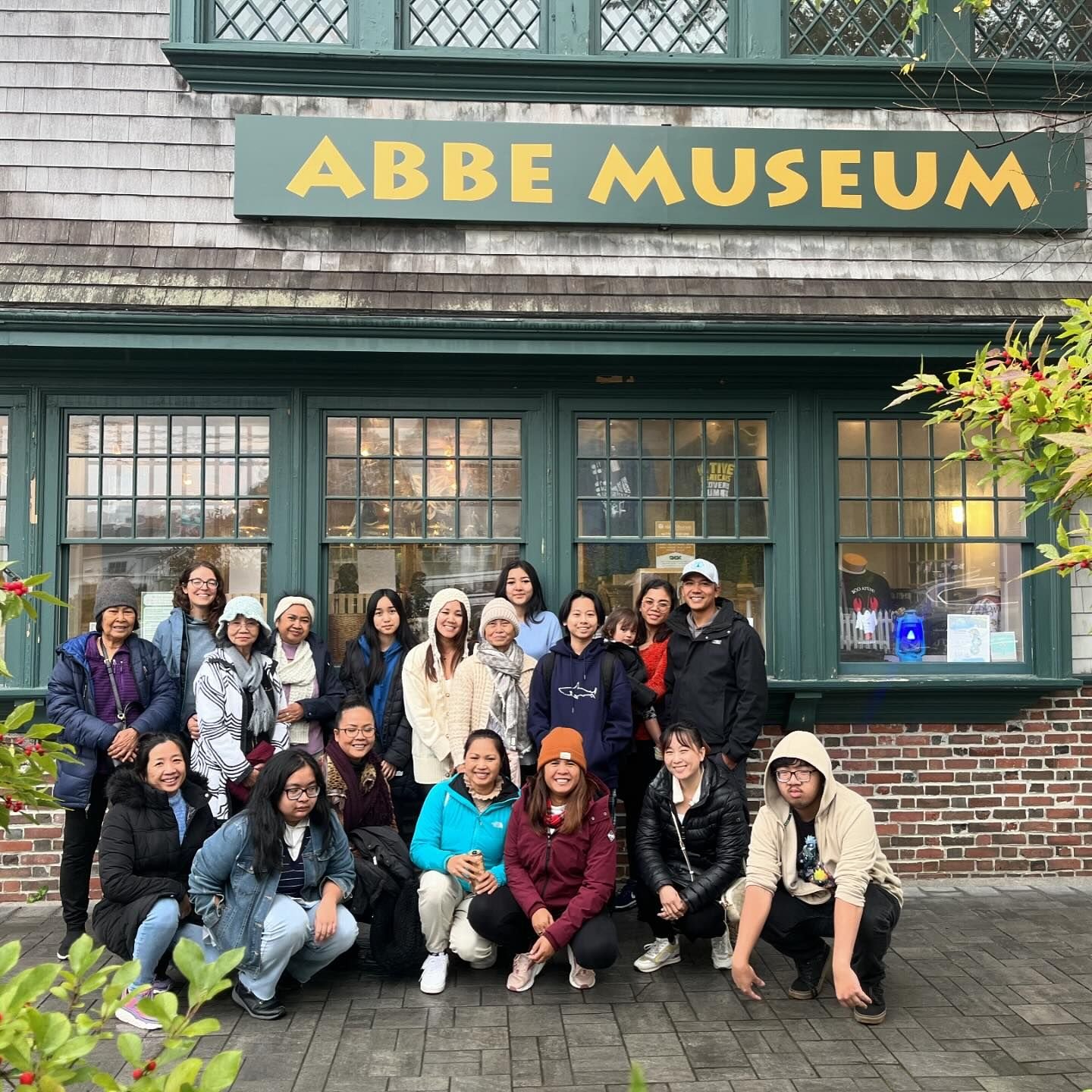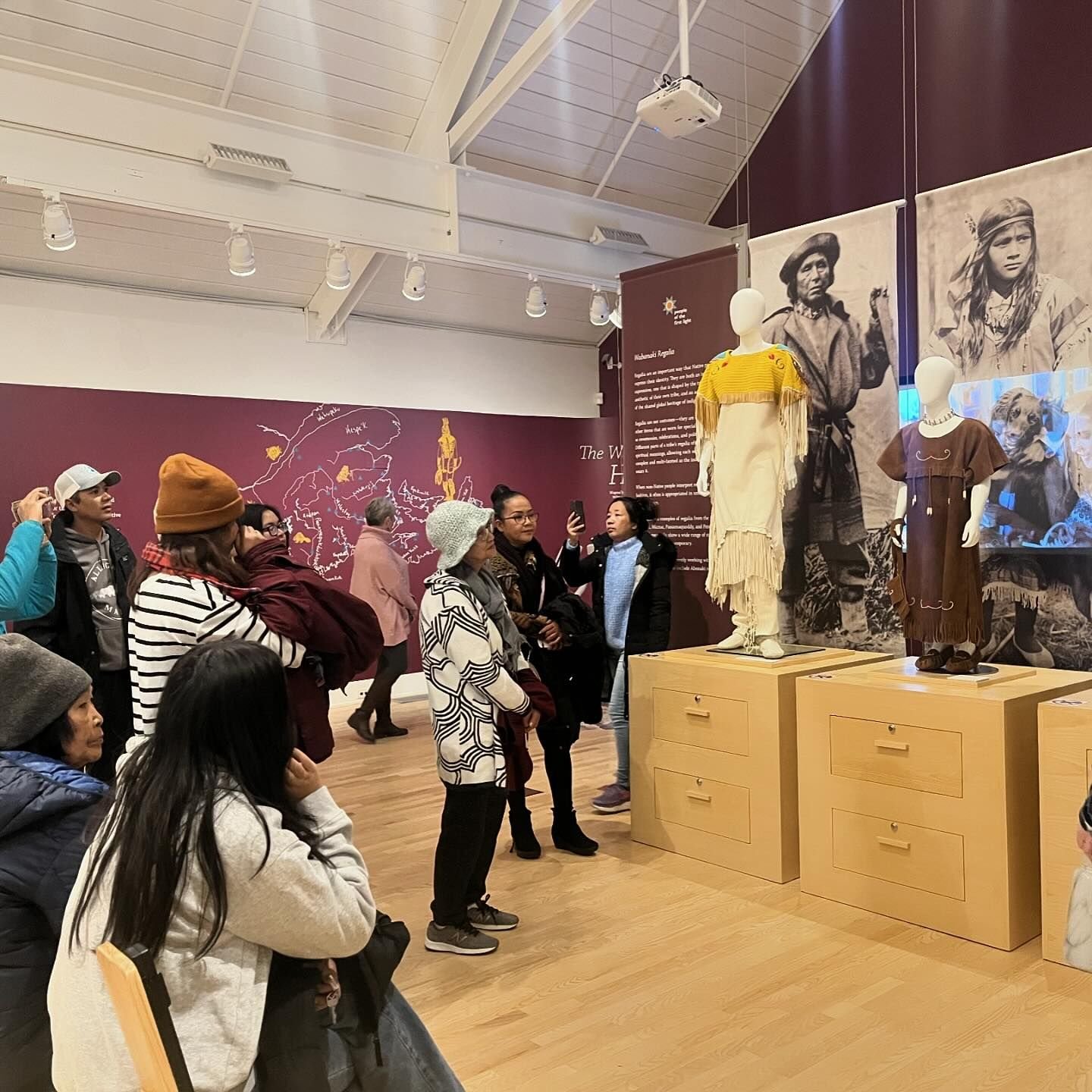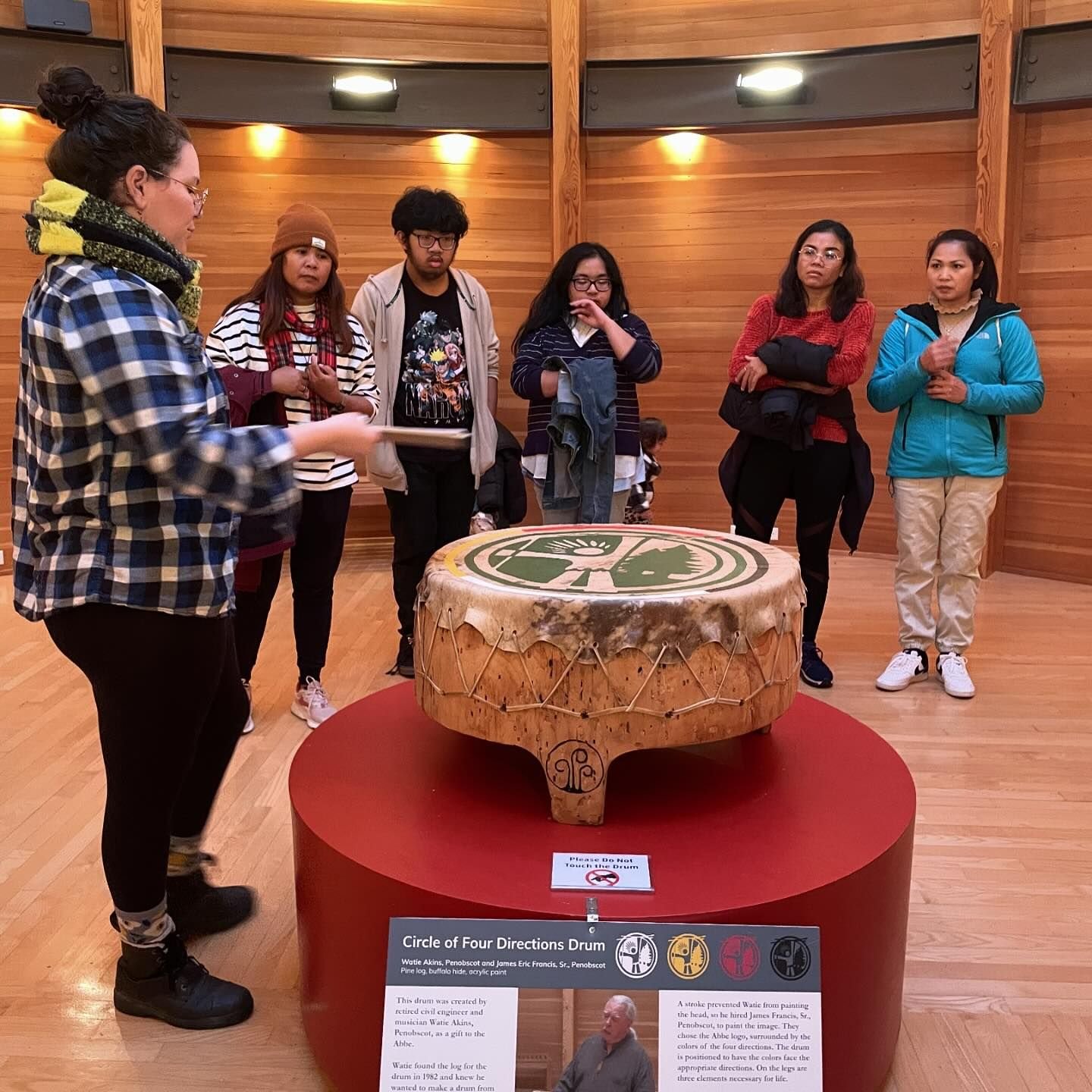Khmer Maine’s Visit to the Abbe Museum: Celebrating Indigenous People’s Day
Khmer Maine photo in front of the Abbe Museum in Bar Harbor.
On Indigenous People’s Day, members of Khmer Maine embarked on a journey to the Abbe Museum in Bar Harbor, Maine. This trip was not just an excursion but a meaningful opportunity to connect with the rich histories and vibrant cultures of the Wabanaki peoples—the original stewards of the lands we now call Maine. Our visit underscored the importance of solidarity, cultural preservation, and learning from Indigenous communities as we continue our mission to sustain Khmer heritage.
The Abbe Museum’s exhibits offered a powerful introduction to the Wabanaki Confederacy, made up of the Penobscot, Passamaquoddy, Maliseet, and Mi’kmaq Nations. Through intricate displays of traditional basketry, storytelling, and contemporary art, we saw parallels to our own Khmer cultural preservation efforts. Like the Khmer community, the Wabanaki people have faced centuries of colonial disruption but remain deeply committed to preserving their languages, traditions, and sense of identity.
One of the most striking moments of the day was learning about the cultural significance of storytelling among the Wabanaki people. Their oral traditions mirror our own Khmer folklore and proverbs, reminding us that stories are the lifeblood of cultural continuity.
As we explored the museum, we were struck by how the Wabanaki community's efforts to reclaim and revitalize their cultural practices resonated with Khmer Maine’s mission. Both communities face the challenge of preserving cultural knowledge in the face of globalization and diaspora.
For instance, the Wabanaki approach to land stewardship and traditional ecological knowledge prompted meaningful discussions among our group. Khmer culture also emphasizes harmony with the natural world, and seeing this reflected in Wabanaki traditions reminded us of the universal values shared by Indigenous and diasporic communities.
The visit was also a reminder of the importance of cross-cultural collaboration. At Khmer Maine, we believe that building bridges between communities strengthens our collective voice for cultural equity. By learning about the ongoing work of the Wabanaki peoples to reclaim their languages and tell their own stories, we felt inspired to continue advocating for Khmer language revitalization and cultural programming in our own work.
One participant shared, “Seeing the Wabanaki people’s strength and determination to honor their heritage made me think about our own struggles to pass on Khmer traditions to the next generation. It’s a shared fight, and we can learn so much from one another.”
Our visit to the Abbe Museum reaffirmed our commitment to cultural sustainability. The experience encouraged us to not only celebrate Khmer heritage but to actively engage with and honor the histories of other marginalized communities. Indigenous People’s Day is a time to recognize the resilience of Indigenous peoples—and to reflect on our shared responsibility to support one another in preserving the beauty and depth of our cultural roots.
As we move forward, we carry with us the lessons learned from the Wabanaki people and their enduring connection to this land. Khmer Maine is grateful for the opportunity to visit the Abbe Museum, and we look forward to fostering deeper relationships between our communities.




